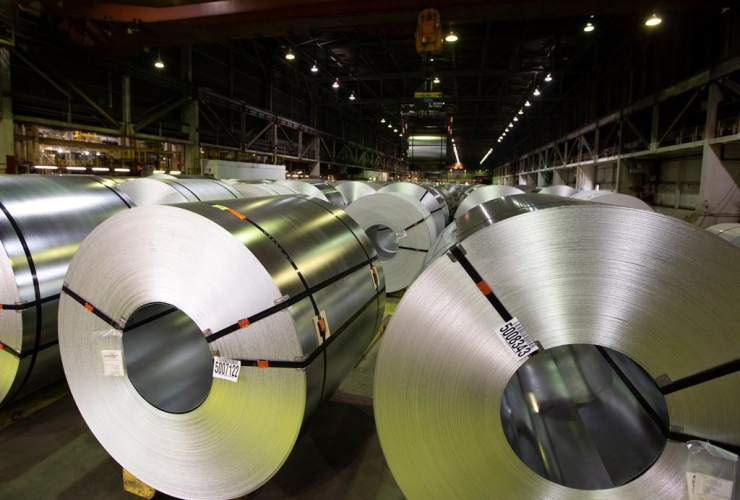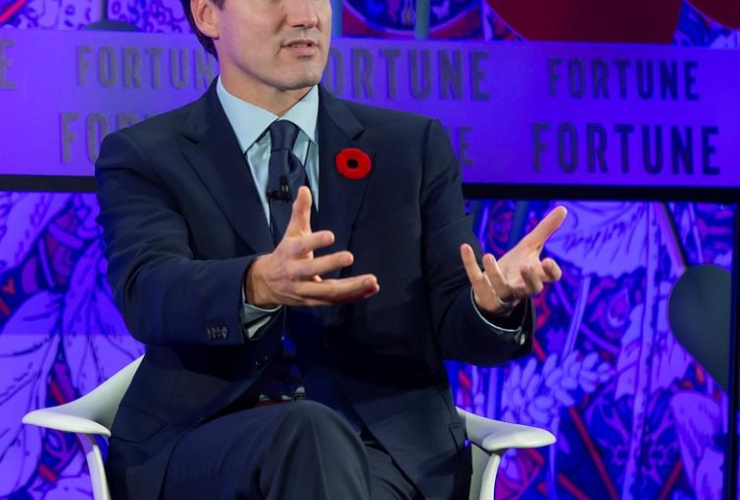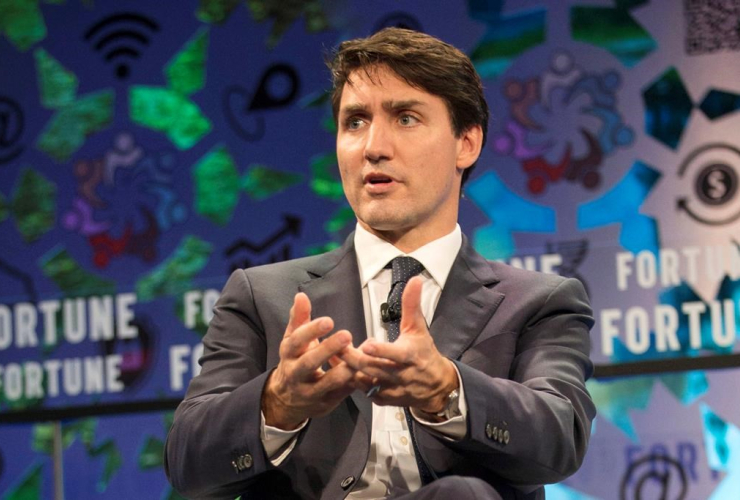Prime Minister Justin Trudeau is setting his sights on the end of the month as the next target date for reaching a trade-and-tariff detente with the United States.
All three countries are expected to take part in a signing ceremony for the U.S.-Mexico-Canada Agreement during the two-day G20 summit, which gets underway Nov. 30 in Buenos Aires — although Canada has warned it will be a low-key, low-level affair if steel and aluminum tariffs are still in place.
There's still time to change that, Trudeau suggested Monday during a news conference in Paris.
"I absolutely brought it up," Trudeau said of his discussions with U.S. President Donald Trump during a dinner Friday organized by French President Emmanuel Macron.
One government official, speaking on condition of anonymity in order to discuss details of a private meeting, said the two leaders had a good exchange on tariffs that included Trudeau making clear to the president the tariffs are hurting consumers and producers on both sides of the Canada-U.S. border.
"The issue of steel and aluminum tariffs continues to be a concern to Canadians, like it is of concern to many American citizens and companies," Trudeau said.
"This is something that, as I've said before and as I related to President Trump, I hope we're able to solve by the time we meet each other in the G20 in Argentina."
David MacNaughton, Canada's ambassador to the U.S., said in an interview last week that some high-level talks on the tariff issue have taken place, and that he has extended an invitation to U.S. trade czar Robert Lighthizer to get formal negotiations back underway.
Insiders say the U.S. has been demanding quotas be imposed on Canadian exports, something Ottawa has made clear is a non-starter.
MacNaughton and Trudeau have both indicated that if a signing ceremony does take place soon, it won't include high-level dignitaries like the prime minister or Foreign Affairs Minister Chrystia Freeland if the tariffs — 25 per cent on steel and 10 per cent on aluminum — remain in place.
On the Mexican side, however, there's an expectation negotiators there are poised to agree to quotas in order to get the deal signed before Dec. 1, which is when incoming president Andres Manuel Lopez Obrador's new administration could inject an unwelcome element of uncertainty.
Resolving the tariff issue with Mexico is the more pressing priority for the U.S., said Dan Ujczo, a trade lawyer and partner with Ohio-based Dickinson Wright.
"The actual issue is to ensure that there's nothing that's going to stop Mexico from signing this deal before Dec. 1, and giving relief to farm country in the U.S. to Mexico's retaliatory tariffs," Ujczo said.
"I think Canada's an afterthought for the U.S. right now in this process."





Comments